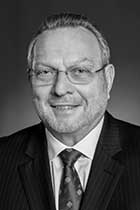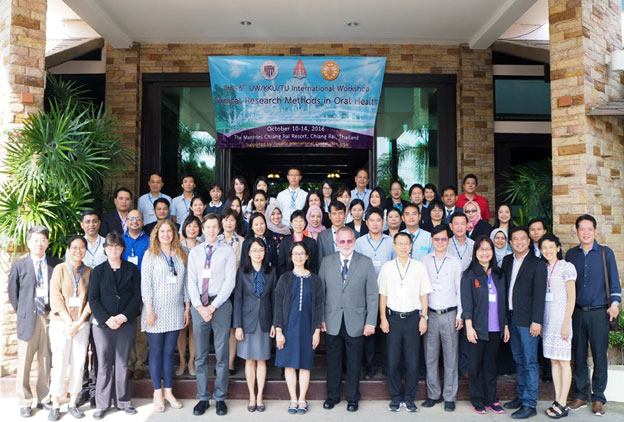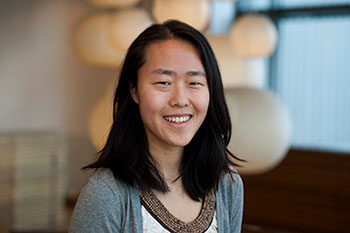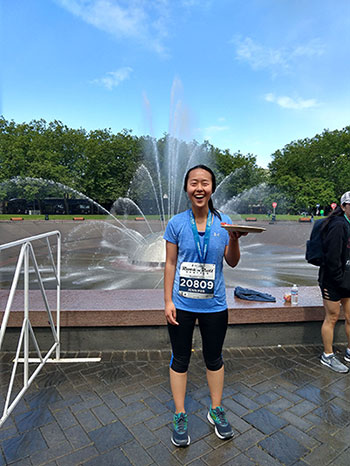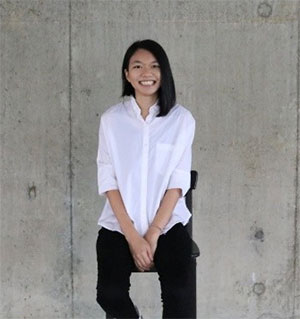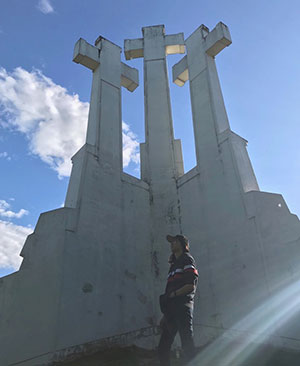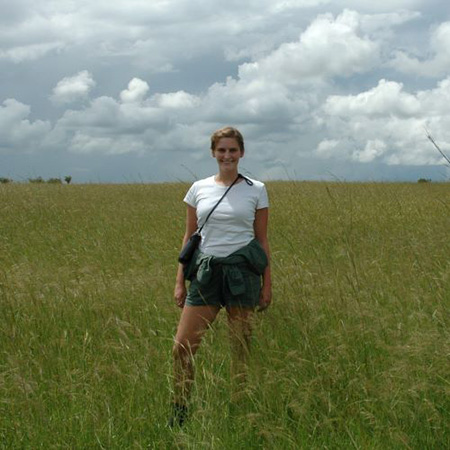 The first step in my Fogarty journey was a one-week long orientation at the NIH Headquarters in Bethesda, MD. The first two days of orientation involved going through an intensive Methodology workshop, and trainees can choose between quantitative or qualitative methodology approaches, dependent on the nature of their project. In these workshops, you get a crash course in data collection, management, and analysis that is pertinent to global health research. Every morning of orientation, there were breakfast networking sessions with directors of different NIH centers. I was one of the two people involved in the field of dentistry, and the first dental student to have ever received the award, which gave me the opportunity to have casual conversation with the director of the National Institute of Dental and Craniofacial Research (NIDCR), Martha J. Somerman, DDS, PhD. It was a rare opportunity to have a one-on-one conversation over breakfast with the director, an opportunity I know many dental researchers will never have. Further, this Fogarty orientation period provided us with more opportunities to interact with some other greats: Anthony Fauci, the immunologist and director of the National Institute of Allergy and Infectious Disease who made significant contributions to HIV/AIDS research and advocacy and is now leading the nation in the battle against COVID-19; Francis Collins, the director of the NIH who also led the Human Genome Project; and Roger Glass, the director of the John E. Fogarty International Center.
The first step in my Fogarty journey was a one-week long orientation at the NIH Headquarters in Bethesda, MD. The first two days of orientation involved going through an intensive Methodology workshop, and trainees can choose between quantitative or qualitative methodology approaches, dependent on the nature of their project. In these workshops, you get a crash course in data collection, management, and analysis that is pertinent to global health research. Every morning of orientation, there were breakfast networking sessions with directors of different NIH centers. I was one of the two people involved in the field of dentistry, and the first dental student to have ever received the award, which gave me the opportunity to have casual conversation with the director of the National Institute of Dental and Craniofacial Research (NIDCR), Martha J. Somerman, DDS, PhD. It was a rare opportunity to have a one-on-one conversation over breakfast with the director, an opportunity I know many dental researchers will never have. Further, this Fogarty orientation period provided us with more opportunities to interact with some other greats: Anthony Fauci, the immunologist and director of the National Institute of Allergy and Infectious Disease who made significant contributions to HIV/AIDS research and advocacy and is now leading the nation in the battle against COVID-19; Francis Collins, the director of the NIH who also led the Human Genome Project; and Roger Glass, the director of the John E. Fogarty International Center.
The beauty of the Fogarty Fellowship is how dynamic the fellowship is, and how different everyone’s experience is. The nature of public health research, especially Global Health, is that there is an ebb and flow of the workload while you wait for approvals or face unique barriers in implementing your study. Fogarty fellows and scholars are diverse- but, the beauty of the Fogarty Fellowship is that it can be tailored to the stage you’re at in your education. For example, several participants are still students in professional or grad schools, while others have recently graduated from their doctoral program. I was able to join an ongoing study in Nairobi (already with IRB approval), which I feel is most appropriate for my level of research experience. However, others, usually early career researchers, are implementing their protocols with no foundation to build from.
Over the past year I have grown as a researcher, having been able to dedicate most of my time to reading scientific literature, career development, writing, and discovering new funding opportunities. My consortium, NPGH, conducted weekly video calls that are aimed at professional development. The topics of these calls range from tips on getting through the IRB approval process, manuscript writing, fostering a positive mentorship experience, etc. We are also given the opportunity to practice presentations about our work followed by constructive feedback from our peers. Each consortium provides different experiences and learning tools for the fellows and scholars. Thanks to my mentor Dr. Kemoli, I sat in on some classes and seminars at the University of Nairobi School of Dental Sciences, and spent some time with fellow dental students to understand more of what their experience is like being a dental student in Kenya.
While living in Nairobi, I joined a local cycling group on the weekends for different bike tours around Nairobi and the surrounding areas as a way to meet friends and see the country on two wheels. Nairobi was a great city to meet new people and had so many things to do- from hiking Ngong Hills to visiting a local art gallery. I was also lucky to have the support and encouragement from my mentors to take time to travel around Kenya, East Africa, and wherever else on the continent. My mentors stressed the importance of traveling during your Fogarty year- it gives you room to grow as a global citizen, to be more immersed in local culture, and to network and make connections. I was able to travel with other Fogarty trainees this year throughout Tanzania, Kenya, South Africa, etc. and had several other trips planned in the region before the pandemic hit. While in Dar es Salaam, Tanzania I was able to visit the only other dentist in the Fogarty program, Dr. Kasusu Nyamuryekung’e at the Muhimbili University of Allied and Health Sciences School of Dentistry.
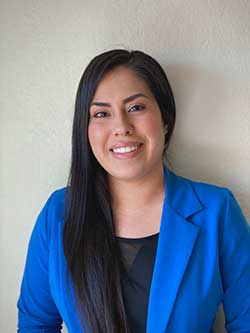 Hi, my name is Janella Bermúdez and I’m currently a fourth-year dental student at the University of Washington. I am one of eight students selected to be in the Regional Initiatives in Dental Education (RIDE) Program, an educational track of the UW. Through community-based experiences, RIDE develops socially responsible dentists who foster a commitment to improving the oral health of vulnerable communities.
Hi, my name is Janella Bermúdez and I’m currently a fourth-year dental student at the University of Washington. I am one of eight students selected to be in the Regional Initiatives in Dental Education (RIDE) Program, an educational track of the UW. Through community-based experiences, RIDE develops socially responsible dentists who foster a commitment to improving the oral health of vulnerable communities.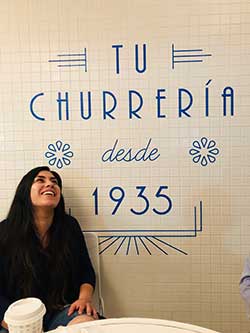 Joining the DeRouen Center
Joining the DeRouen Center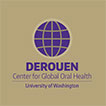
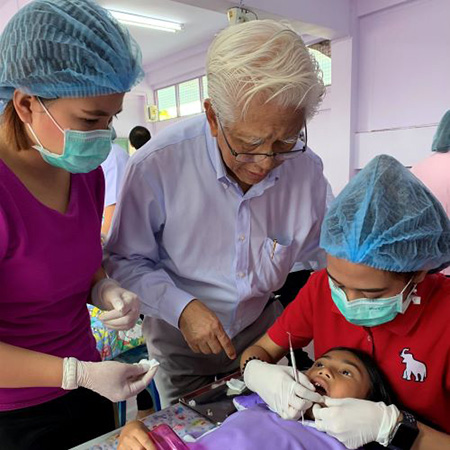 In the past decade, one of the activities of the WHO is to provide consultants to developing countries worldwide. I had the privilege to be short-term consultant for oral health in a few countries such as Dental education and dental public health in Laos PDR, and Myanmar; De-fluoridation to prevent fluorosis in Tanzania, India, and Sri Lanka; Atraumatic Restorative Treatment (ART) for appropriate dental restorations in Bhutan, Indonesia, and Syria. It was necessary to study the local health and oral health system and situation in advance, as well as seek the advice of local authorities during the visit. First-hand information about the people through direct dialogue was key input for the WHO consultants to develop a practical oral health plan with appropriate technology. My latest activities with the WHO was involvement in the Myanmar First National Oral Health Survey in 2016, followed by using collected data for planning the National Oral Health Strategy in 2018. Then in 2019, the Ministry of Health and Sport organized the WHO Regional side-meeting with the Asian Chief Dental Officers Meeting (ACDOM) in Mandalay, Myanmar.
In the past decade, one of the activities of the WHO is to provide consultants to developing countries worldwide. I had the privilege to be short-term consultant for oral health in a few countries such as Dental education and dental public health in Laos PDR, and Myanmar; De-fluoridation to prevent fluorosis in Tanzania, India, and Sri Lanka; Atraumatic Restorative Treatment (ART) for appropriate dental restorations in Bhutan, Indonesia, and Syria. It was necessary to study the local health and oral health system and situation in advance, as well as seek the advice of local authorities during the visit. First-hand information about the people through direct dialogue was key input for the WHO consultants to develop a practical oral health plan with appropriate technology. My latest activities with the WHO was involvement in the Myanmar First National Oral Health Survey in 2016, followed by using collected data for planning the National Oral Health Strategy in 2018. Then in 2019, the Ministry of Health and Sport organized the WHO Regional side-meeting with the Asian Chief Dental Officers Meeting (ACDOM) in Mandalay, Myanmar. The first step in my Fogarty journey was a one-week long orientation at the NIH Headquarters in Bethesda, MD. The first two days of orientation involved going through an intensive Methodology workshop, and trainees can choose between quantitative or qualitative methodology approaches, dependent on the nature of their project. In these workshops, you get a crash course in data collection, management, and analysis that is pertinent to global health research. Every morning of orientation, there were breakfast networking sessions with directors of different NIH centers. I was one of the two people involved in the field of dentistry, and the first dental student to have ever received the award, which gave me the opportunity to have casual conversation with the director of the National Institute of Dental and Craniofacial Research (NIDCR), Martha J. Somerman, DDS, PhD. It was a rare opportunity to have a one-on-one conversation over breakfast with the director, an opportunity I know many dental researchers will never have. Further, this Fogarty orientation period provided us with more opportunities to interact with some other greats: Anthony Fauci, the immunologist and director of the National Institute of Allergy and Infectious Disease who made significant contributions to HIV/AIDS research and advocacy and is now leading the nation in the battle against COVID-19; Francis Collins, the director of the NIH who also led the Human Genome Project; and Roger Glass, the director of the John E. Fogarty International Center.
The first step in my Fogarty journey was a one-week long orientation at the NIH Headquarters in Bethesda, MD. The first two days of orientation involved going through an intensive Methodology workshop, and trainees can choose between quantitative or qualitative methodology approaches, dependent on the nature of their project. In these workshops, you get a crash course in data collection, management, and analysis that is pertinent to global health research. Every morning of orientation, there were breakfast networking sessions with directors of different NIH centers. I was one of the two people involved in the field of dentistry, and the first dental student to have ever received the award, which gave me the opportunity to have casual conversation with the director of the National Institute of Dental and Craniofacial Research (NIDCR), Martha J. Somerman, DDS, PhD. It was a rare opportunity to have a one-on-one conversation over breakfast with the director, an opportunity I know many dental researchers will never have. Further, this Fogarty orientation period provided us with more opportunities to interact with some other greats: Anthony Fauci, the immunologist and director of the National Institute of Allergy and Infectious Disease who made significant contributions to HIV/AIDS research and advocacy and is now leading the nation in the battle against COVID-19; Francis Collins, the director of the NIH who also led the Human Genome Project; and Roger Glass, the director of the John E. Fogarty International Center.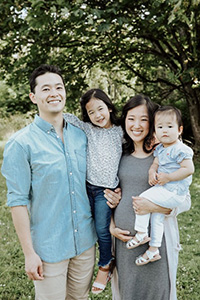 Justin is a third-year dental student at the University of Washington. He graduated from Brigham Young University with a degree in Physiology and Developmental Biology and is passionate about the health-care field. Justin lived in São Paulo, Brazil for two years as a volunteer through church and loves to learn about cultures and people around the world. He enjoys playing and spending time with his daughters and watching sports with his wife.
Justin is a third-year dental student at the University of Washington. He graduated from Brigham Young University with a degree in Physiology and Developmental Biology and is passionate about the health-care field. Justin lived in São Paulo, Brazil for two years as a volunteer through church and loves to learn about cultures and people around the world. He enjoys playing and spending time with his daughters and watching sports with his wife.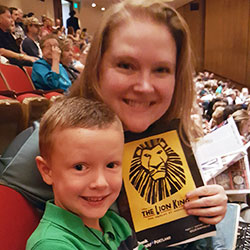 I chose to go into public health because it is an interesting and ever-evolving field. As the current COVID-19 pandemic shows, once basic public health breaks down, people cannot work, take care of their families, or interact with their communities in a normal way. Public health is the pulse of our society – without basic metrics of public health people are not able to pursue their daily lives.
I chose to go into public health because it is an interesting and ever-evolving field. As the current COVID-19 pandemic shows, once basic public health breaks down, people cannot work, take care of their families, or interact with their communities in a normal way. Public health is the pulse of our society – without basic metrics of public health people are not able to pursue their daily lives.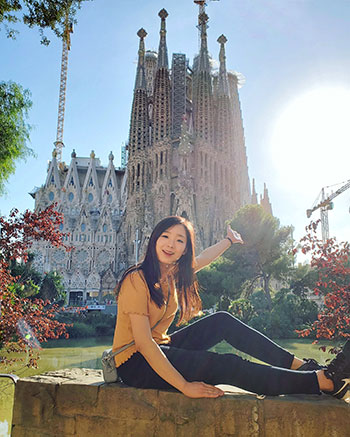 Why I chose dentistry
Why I chose dentistry